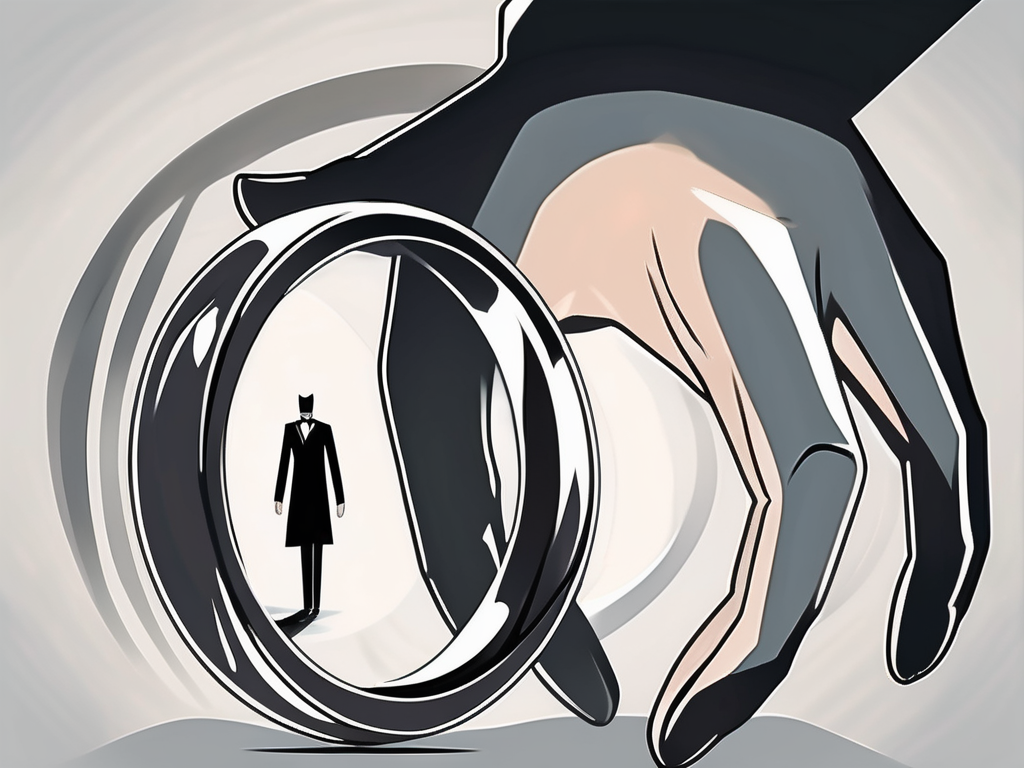Divorce is a challenging and emotionally draining experience, often leading to emotional distress as many people find themselves struggling with depression after the end of a marriage. However, this phase doesn’t have to define your future. It can be the beginning of a powerful journey toward self-discovery and empowerment. This blog will explore divorce depression and provide practical steps to help you move from feelings of despair to reclaiming your happiness and becoming the best version of yourself.
Understanding Divorce Depression: The Emotional Toll
Divorce depression is an authentic experience. When your life as you knew it shifts drastically, the emotional turmoil can feel overwhelming. Feelings of sadness, loss, and even a sense of failure often accompany this emotional pain. The journey can feel insurmountable, often accompanied by emotional fluctuations and stressful life events like legal proceedings, child custody arrangements, and financial strain.
It’s crucial to understand that the emotional turmoil from post-divorce blues, including depression and anxiety, are natural responses to loss. Just as with any other grief process, it’s necessary to allow yourself to feel and process these emotions. One of the key messages I convey to clients is that, while painful, divorce can also be an opportunity to manage anxiety and focus on rebuilding and refocusing. You are not alone in this experience.
My Journey Through Divorce and Finding Empowerment
When I went through my divorce, emotional volatility seemed unavoidable. But rather than allowing it to define me, I took a different approach. I began taking small steps forward—taking care of my responsibilities, focusing on my children, and working on self-improvement. Gradually, the depression started to fade as I employed coping strategies and found happiness in taking control of my life.
Many people, including friends I’ve witnessed go through a divorce, believe that finding another relationship will bring happiness. But the truth is, if you’re not happy with yourself, another relationship won’t solve that. You will only attract someone equally unhappy. The turning point came when I focused on my empowerment—becoming the best version of myself. Only after reaching a state of self-contentment did a meaningful relationship naturally come into my life.
Practical Steps to Overcome Divorce Depression
If you’re experiencing emotional distress amid divorce depression, there is hope. Here are actionable steps to help you move forward:
- Focus on Self-Care
- Taking care of your mental and physical health is crucial. Engage in activities that nourish you, such as regular exercise, meditation, and eating healthy foods. Self-care should be your priority.
- Take It One Step at a Time
- When facing divorce depression, the road ahead can seem overwhelming. Start by focusing on small, manageable tasks like your daily routine or personal projects. This helps build momentum.
- Redefine Your Purpose
- Divorce is not the end of your story—it’s the beginning of a new chapter. Use this time to rediscover passions and interests you may have neglected. Whether pursuing a hobby or setting new career goals, focus on what brings you joy.
- Avoid Seeking Validation in a New Relationship
- It’s tempting to think that finding someone new will fill the void. But lasting happiness starts with being content with yourself. Focus on becoming empowered and fulfilled in your own life first. Relationships will naturally follow when you’re in a positive state.
- Surround Yourself with Positive Support
- Isolation can exacerbate divorce depression. Reach out to friends, family, or support groups that can uplift you. It’s essential to have a robust and positive network during this time.
- Seek Professional Help
- Don’t hesitate to seek guidance from a Divorce Coach or therapist. A Certified Divorce Specialist can provide you with strategies and tools to navigate the emotional challenges of divorce.
Managing Divorce-Related Mental Health Impact
For many, the impact of divorce on mental health extends beyond immediate sadness and worry. According to mental health experts like Janet Brito, Ph.D., and Joslyn Jelinek, LCSW, divorce is one of the most stressful life events, often leading to situational depression. Situational depression occurs when life changes overwhelm your ability to cope and can manifest as difficulty sleeping, increased anxiety, and feelings of hopelessness. If these feelings persist, they may develop into a more severe condition, such as posttraumatic stress disorder, adjustment disorder, or increased tension.
In cases of preexisting mental distress, divorce can further amplify those symptoms. It’s essential to manage these feelings carefully and reach out to a professional if necessary. National Suicide Prevention Lifeline resources can also provide support during difficult times if suicidal thoughts arise.
Why Empowerment is Key to Moving Forward
Empowerment is the key to moving forward. It means taking back control of your life. It’s recognizing that your happiness doesn’t depend on anyone else—it’s something you cultivate from within. When you shift your mindset from defeat to empowerment, you’ll not only overcome divorce depression, but you’ll also build a foundation for a brighter, more fulfilling future. You have the power to shape your own destiny, even amidst mental suffering.
Too often, people get stuck in their pain, waiting for someone or something to change their circumstances. But the transformation begins when you start taking small steps toward self-improvement. By levelling up and focusing on your personal growth, you can move beyond the pain and create a life that excites you.
Thoughts on Divorce Depression
Divorce depression is a challenging but temporary phase. By focusing on self-care, surrounding yourself with positive support, and gradually setting goals, you can move through this period and become more vital than ever. Empowerment isn’t about finding someone else to fill the void—it’s about becoming the best version of yourself.
You don’t have to go through it alone if you’re struggling. Contact a Divorce Coach who can help you navigate your journey and provide the support you need to rebuild your life. Remember, you are stronger than you think, and with the right tools and mindset, you will overcome this chapter.
Final Thoughts
Divorce is an incredibly challenging experience, and it’s natural to go through mood fluctuations, including postdivorce depression. After marital dissolution, people may experience depression, feel isolated, or even struggle with a sense of loss. This period can be marked by depressive symptoms, such as fatigue, sadness, and difficulty concentrating. Older adults and those with previous mental health conditions may be less likely to recover quickly and may require additional coping tools for support.
The most important thing to remember is that these feelings, while intense, can be managed with adaptation tactics as part of the healing process. You may experience emotional volatility and feel overwhelmed or uncertain about what the future holds, but there are ways to feel better. Take small steps toward rebuilding your life with effective resilience methods, engaging in self-care, reaching out to trusted friends, or seeking professional support.
It’s common for individuals to feel burdened by the weight of divorce papers and the logistics of ending marriage, but understanding that this is temporary can bring relief. If you’re experiencing depression, it’s crucial to acknowledge your emotions and seek help when needed. Two people going through divorce may cope differently, but everyone can find a path forward. With time, support, and effort, you may find that life after experiencing emotional fluctuations from divorce is filled with new opportunities for growth and fulfillment.
11 Key Takeaways About Divorce Depression
- Divorce depression is a natural response to loss: Many people experience feelings of sadness, failure, and mental suffering after divorce, but it’s an opportunity for healing and self-discovery.
- Self-care is crucial: Prioritizing mental and physical health, especially amid emotional ups and downs, through activities like exercise, meditation, and proper nutrition is essential in overcoming divorce depression.
- Take small steps forward: Progress comes from taking manageable actions, whether it’s through daily routines or personal projects, helping to build momentum and create a sense of control.
- Redefine your purpose: Divorce provides a chance to rediscover personal passions and interests that may have been sidelined, allowing for a new, fulfilling chapter of life.
- Avoid seeking validation in new relationships: Happiness and contentment must come from within before engaging in a new relationship. Focusing on self-improvement leads to healthier, more meaningful future connections.
- Surround yourself with positive support: A strong network of supportive friends, family, or peer groups is important in navigating the emotional challenges of divorce.
- Divorce depression can lead to situational depression: Stressful life events such as divorce can trigger situational depression or amplify pre-existing mental health challenges, necessitating effective coping strategies.
- Empowerment is key: Taking control of your life and recognizing that happiness is self-generated helps shift the mindset from victimhood to personal strength.
- Professional support is invaluable: A Certified Divorce Specialist or Divorce Coach can offer tools, strategies, and emotional support to help navigate the complexities of post-divorce depression.
- Mental health care is essential: Persistent symptoms of depression may require professional mental health support, including therapy or other interventions.
- The journey is unique but temporary: While divorce depression is challenging, with the right steps and support, individuals can move through it and come out stronger, happier, and empowered


